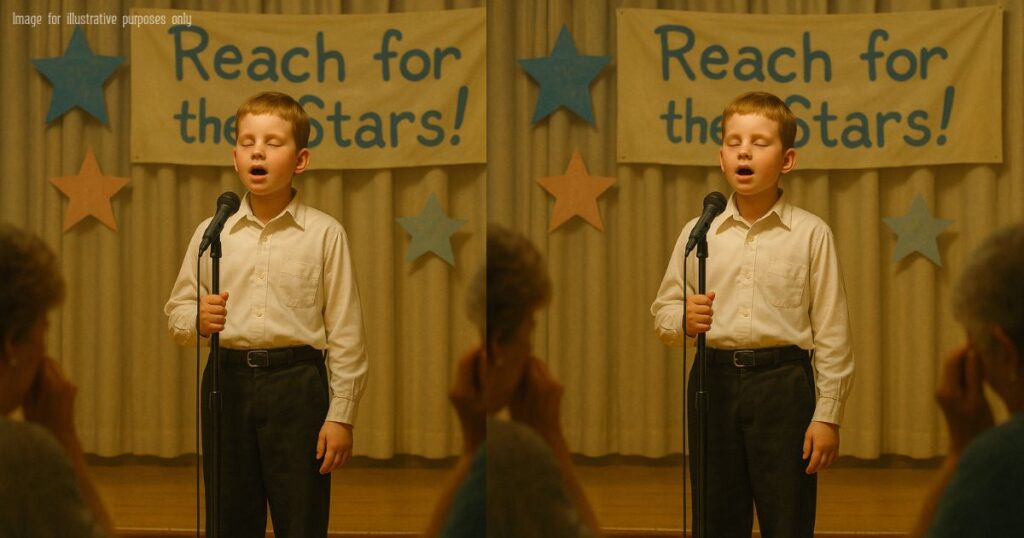That summer, the mayor’s office asked if we’d be willing to perform at the town’s Fourth of July celebration.
At first, I hesitated.
It wasn’t fear.
It was reverence.
See, there’s something sacred about letting a child who’s spent her life in shadows step out into the light—
Not just seen, but heard.
But Jeremy said, “They’re ready, Mrs. Briggs. Let them shine.”
So we did.
We rehearsed every Tuesday and Thursday in the borrowed room at the community center—
A space meant for bingo games and council meetings, now echoing with off-key joy and tambourines.
Delilah wanted to sing lead.
She practiced the anthem in Braille every night with her mother, her small fingers dancing across the pages like they had their own song to tell.
There was also Malik, who’d learned to keep time by counting the vibrations in the floor with his toes.
And sweet Sarah, who didn’t speak but tapped rhythms on her chest that matched every melody perfectly.
Jeremy coached them like he was born to do it.
No ego, just heart.
I stood back and watched.
They weren’t perfect.
They were better than perfect.
They were real.
The night of the performance, the sky opened up—
but not with rain.
With stars.
Thousands of them, blinking like applause before the first note.
The stage was small, just a flatbed truck dressed in bunting.
The crowd, larger than expected.
I saw teachers, old students, even the school board members who once cut my program—
all standing quietly, hands over hearts, maybe remembering.
The kids filed up slowly, led by Jeremy.
He strummed the opening chords.
Delilah stepped forward, holding her cane in one hand and a microphone in the other.
And then—
“Oh say can you see…”
Her voice was soft.
Then steady.
Then soaring.
People cried.
Not the pretty kind of cry you see in movies.
The real kind—the kind that takes you by the ribs and reminds you what it means to feel.
By the time she reached “home of the brave,”
a woman in the front row dropped her soda,
a teenage boy took off his baseball cap,
and I swear—
even the stars held still to listen.
When it ended, there was silence.
That heavy kind, like after prayer.
Then someone clapped.
Then another.
And then—
thunder.
Not from clouds.
From hearts.
The children bowed.
Delilah smiled wide, her teeth catching the stage lights.
Jeremy knelt beside her, tears on his cheeks.
“I knew you could do it,” he whispered.
“I felt them listening,” she said.
“Even the ones who couldn’t see me.”
That was the last class I ever taught.
Not because I gave up.
Because I finally felt full.
Now, every year on July Fourth, the town holds a concert led by children with different abilities.
They call it “Anthem in Braille.”
Jeremy runs it.
I sit in the front row, same folding chair, every time.
Sometimes, strangers stop me after.
“Were you the teacher?”
I smile and nod.
And when they thank me, I always say the same thing:
“I didn’t teach them music. I just gave them permission to sing.”
Final note:
In a world that tells us what’s “essential,”
don’t forget the quiet classrooms, the stubborn old pianos,
and the children who sing even when no one’s looking.
They are the song.
And we—
we are lucky to listen.
Your support means the world. It helps us write more stories that heal the heart and stir the soul. Subscribe to “Things That Make You Think” to support our work—and unlock exclusive stories you won’t find anywhere else. https://www.facebook.com/thingsmakeyouthink/subscribe


